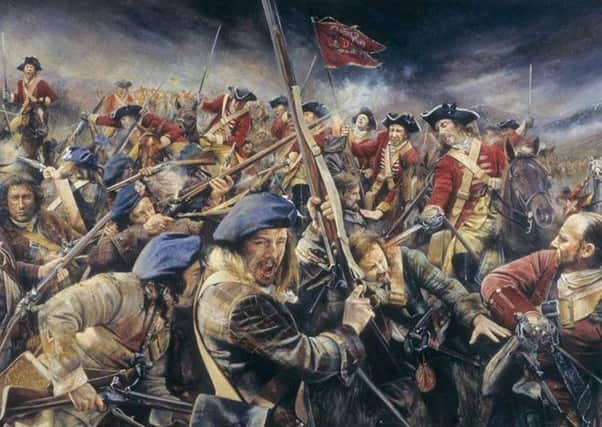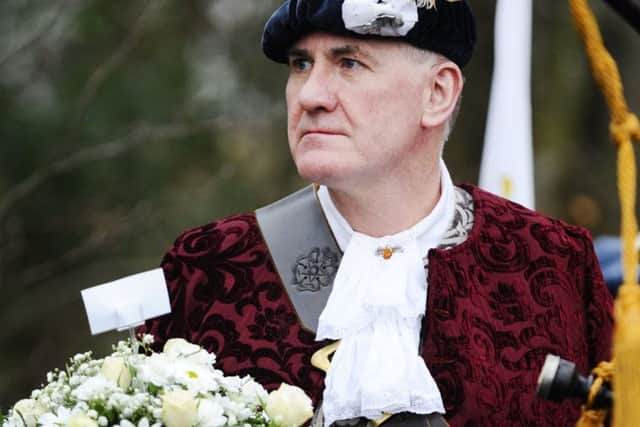Heritage clans gather to mark the 1746 Battle of Falkirk Muir


Those in attendance had come to remember a pivotal episode in Scottish and British history, fought in near blizzard conditions on January 17.
They included representatives from heritage groups such as Scotia’s Warriors, who came fully equipped in painstakingly-created authentic Jacobite-style attire.
Advertisement
Hide AdAdvertisement
Hide AdMost present sported the famous White Cockade of Bonnie Prince Charlie’s army.


One group, SITV, handed out badges bearing the slogan “Prosperity for Scotland and no Union” - recalling the Jacobites’ historic ambition to restore to England, Scotland and Ireland their independence under a single (Stuart) monarch.
The skirl of the pipes, playing the old Jacobite air “Bonnie Dundee”, was another reminder of the days when Falkirk and surrounding villages were briefly in the eye of the storm in a brutal dynastic civil war.
The Knights Templar Scotland, who also attend Falkirk’s 1298 annual commemoration, were also present - and its spokesman gave an outline of the battle and its consequences.
Youngsters in Jacobite dress laid wreaths of white flowers at the foot of the monument, while puzzled motorists passing by on Greenbank Road slowed down to observe the unusual spectacle.
The battle itself was a Jacobite victory - the last- and the Highland host went on to occupy Falkirk the same night.
On the outskirts of Falkirk forces loyal to the royal house of Stuart had outmanoeuvred and routed those of “the usurping Hanoverians”, as their redcoat opposition were described.
But the impetuosity of the Highlanders could have cost them their valedictory success, and it was the steady regular troops of the Irish Picquets - elite soldiers in the French army - who put the result beyond doubt.
Advertisement
Hide AdAdvertisement
Hide AdHundreds of men lay dead or maimed on the Muir, and many redcoats are said to have drowned trying to flee across the River Carron.
Around 700 prisoners are said to have been taken - although most, amid anarchic scenes, later managed to escape.
However with fresh Government forces closing in Prince Charlie’s army continued its long retreat, also abandoning a farcical siege of Stirling Castle.
The starving, outnumbered host was destroyed - many fugitives were later hunted down and murdered - at Culloden.
Grangemouth councillor Robert Spears (Independent), also present today, said that despite the sombre reality of those distant events the 1746 clash remains a vitally important element of Falkirk’s heritage.
He also noted the irony in the fact that the new surge of interest in a turbulent past has been fuelled by the success of TV productions such as Game of Thrones and Outlander - both fantasies, rather than history.
“At the same time we now also have Outlaw King and the new Mary Queen of Scots film - both certain to drive new interest in real history and in our area”. he said.
“Our heritage is important, and must be a central element of our visitor tourism strategy in future - Falkirk needs and deserves to have commemoration of these major historic events at the forefront of its efforts to bring people to the town”.
Advertisement
Hide AdAdvertisement
Hide AdMeanwhile, he added, it is encouraging to see a new generation of young Bairns and Portonians taking a keen interest in events that have been “brought to life” by successful heritage events like Falkirk 1298.